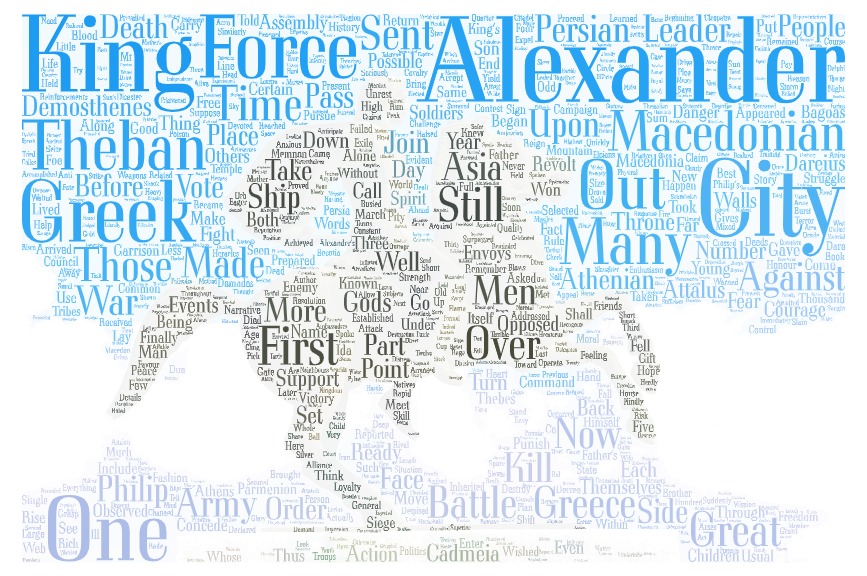Alexander accomplished great things in a short space of time, and by his acumen and courage surpassed in the magnitude of his achievements all kings whose memory is recorded from the beginning of time. In twelve years he conquered no small part of Europe and practically all of Asia, and so acquired a fabulous reputation like that of the heroes and demigods of old. But there is really no need to anticipate in the introduction any of the accomplishments of this king; his deeds reported one by one will attest sufficiently the greatness of his glory.
Diodorus Siculus 17.1.3–4, translated by Oldfather
Our summer read this year is Diodorus Siculus’ account of Alexander the Great.
In July we will read Diodorus’ Library of History Book 17 part one: Chapters 1–63, and next month will conclude with part 2.
In his introduction to Book 17, Oldfather[1] says:
… the account of Diodorus is of interest and importance, although his conventional style of writing and his carelessness in abridgement often deprive him of the clarity and dramatic effect for which he aimed.
and Wikipedia[2] says:
It is the oldest surviving Greek source (1st century BC). Diodorus regarded Alexander like Caesar as a key historical figure and chronological marker.
Here are links to free online editions of Diodorus Siculus Book 17:
Translation by C.H. Oldfather, Online at Perseus
or at LacusCurtius
Translation by G. Booth at archive.org
Translation by Bradford Welles at archive.org
We will start and continue discussion in the Forum, and meet via Zoom on Tuesday July 25 at 11 a.m. EDT.
Happy readings!
Optional extras
For those interested in comparing different accounts of Alexander,
Plutarch included Alexander in his Parallel Lives — according to Wikipedia
Plutarch devotes a great deal of space to Alexander’s drive and desire and strives to determine how much of it was presaged in his youth. He also draws extensively on the work of Lysippus, Alexander’s favorite sculptor, to provide what is probably the fullest and most accurate description of the conqueror’s physical appearance.”
- Plutarch: Life of Alexander, for example at LacusCurtius
Arrian’s Anabasis or Campaigns of Alexander — according to Wikipedia
“is generally considered one of the best sources on the campaigns of Alexander as well as one of the founders of a primarily military-based focus on history. Arrian cites his source by name and he often criticizes them. He is not interested in the King’s private life, overlooking his errors.”
- Arrian: The Anabasis of Alexander, for example translated by E.J. Chinnock, on Project Gutenberg
Notes
1 Diodorus Siculus, translated by C.H. Oldfather, at LacusCurtius
https://penelope.uchicago.edu/Thayer/E/Roman/Texts/Diodorus_Siculus/Vol8_Introduction*.html
2 Wikipedia: Historiography of Alexander the Great
https://en.wikipedia.org/wiki/Historiography_of_Alexander_the_Great
